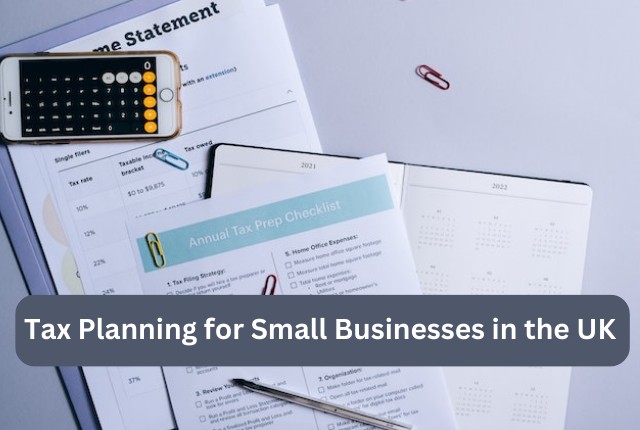
Tax Planning for Small Businesses in the UK: A Comprehensive Guide
Tax planning is a crucial aspect of running a successful small business in the UK. It involves strategic financial decisions that can help you minimize your tax liability while remaining compliant with the law. Effective tax planning can free up resources that you can reinvest in your business for growth. In this comprehensive guide, we will explore various tax planning strategies tailored to small businesses operating in the United Kingdom.
Understanding the UK Tax Landscape
Before diving into tax planning strategies, it’s essential to understand the UK tax system. Here, we’ll provide an overview of key taxes that impact small businesses:
- Income Tax: Learn how income tax affects sole traders and partnerships.
- Corporation Tax: Understand the tax implications for limited companies.
- Value Added Tax (VAT): Explore VAT registration and schemes available.
- National Insurance Contributions (NICs): Discover how NICs work for business owners and employees.
Year-Round Tax Planning
Year-round tax planning involves proactive steps to minimize your tax liability. We’ll discuss strategies such as:
- Expense Tracking: How meticulous record-keeping can help you claim legitimate deductions.
- Tax-Efficient Business Structures: Choosing the right legal structure for your business.
- Salary vs. Dividends: The advantages and disadvantages of each for company directors.
- Tax Credits and Reliefs: Explore available tax credits and reliefs for small businesses.
- Capital Allowances: Understanding what assets can be claimed as capital allowances.
End-of-Year Tax Planning
As the fiscal year-end approaches, it’s time to fine-tune your tax strategy:
- Financial Statements: Preparing accurate financial statements for tax returns.
- Tax Deadlines: Key dates to remember for tax filings and payments.
- Maximizing Deductions: Strategies for maximizing allowable deductions.
- Tax-Efficient Investments: Explore investment opportunities that offer tax benefits.
- Pensions and Retirement: How pension contributions can reduce your tax liability.
Seeking Professional Advice
Navigating the UK tax system can be complex, especially for small business owners. In this section, we emphasize the importance of seeking professional advice from accountants or tax advisors. They can provide personalized guidance, ensure compliance, and identify tax-saving opportunities specific to your business.
Conclusion
In the competitive landscape of small businesses in the UK, effective tax planning is not just a financial strategy; it’s a survival tactic. By understanding the tax landscape, implementing year-round and end-of-year tax planning strategies, and seeking professional advice when needed, you can optimize your business’s financial health and position it for long-term success.
Whether you’re a sole trader, partnership, or limited company, proactive tax planning is your key to maintaining a healthy bottom line and achieving your business goals in the UK.
Remember, the tax landscape is subject to change, so it’s crucial to stay updated and adapt your tax planning strategies accordingly.


